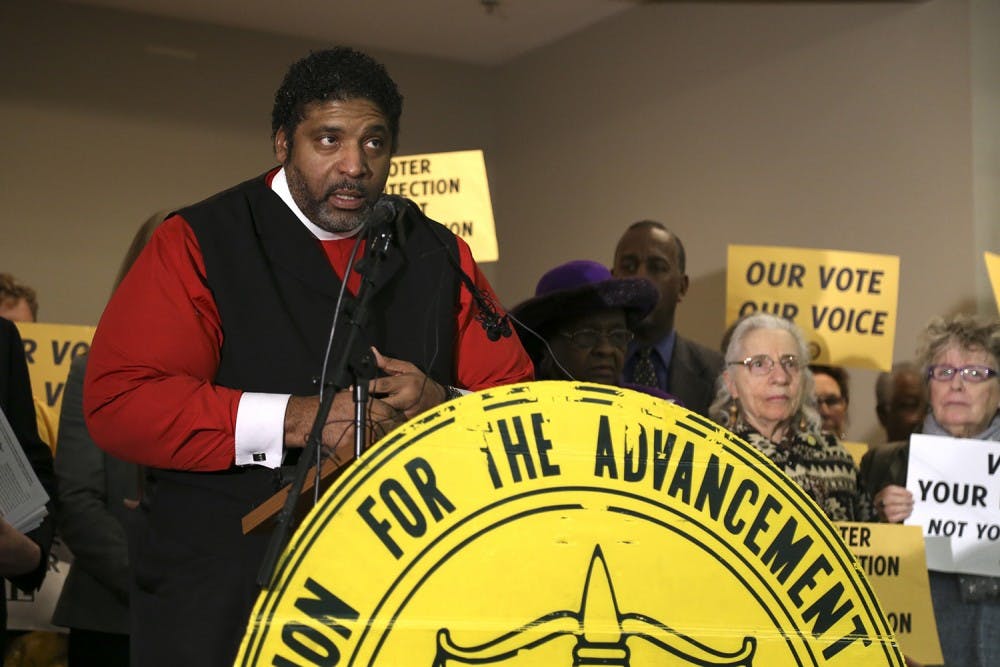National NAACP National President Cornell William Brooks and N.C. state NAACP President Rev. William Barber proposed the boycott in a press conference on Friday in Raleigh.
“The NAACP refuses to accept this attack on democracy or the commoditization of bias against people due to racial or gender identity here in North Carolina or anywhere else around the nation,” Brooks said in a statement. “This we will fight against with all of our resources until we win.”
North Carolina’s situation represents the state of the country, Barber said in the a statement.
“What has happened in North Carolina makes this state a battleground over the soul of America and whether our nation is sincere about making democracy real for all people, not just those with the right bank account, right sexuality or right skin,” Barber said.
The NAACP set forth six conditions under which it would end the proposed economic boycott, it said in the press release.
Among them are a full repeal of House Bill 2; a repeal of Senate Bill 4, one of the final laws signed by former Gov. Pat McCrory that limited the powers of the incoming governor; and a complete replacement of racially gerrymandered voting districts with fair alternatives.
Anna Richards, president of the Chapel Hill-Carrboro branch of the NAACP, said the boycott became necessary when other methods of protest proved ineffective.
“Sometimes, when you appeal to the moral conscience of people who don’t appear to have one, you have to hit them in language that they understand,” Richards said. “That is, economically.”




